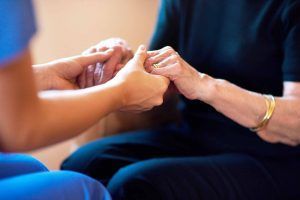When you’re looking for autism services available to you, it can be hard to know where to start. Whether you’re autistic yourself or you support an autistic person as a carer, personal assistant, or family member, you may have questions or need support.
In this directory, we’ve put together a selection of autism services available for children and young people, adults, and carers.

General information and research about autism
If you’re still learning about autism and what it might mean for you or your family, these organisations can provide more information about neurodiversity, development, and life as an autistic person.
- National Autistic Society: The National Autistic Society is the main autism charity in the UK. They run specialist schools, social groups and care facilities, offer training and education about autism, and campaign to empower autistic people. Their website includes a comprehensive autism services directory, online community, and lots of information on how autism affects people.
- Autism Alliance: The Autism Alliance is a group of not-for-profit organisations that support autistic people around the UK.
- NHS information about autism: Information about autism from the NHS, along with advice about how to obtain a diagnosis. The NHS website also contains information about autism in an easy-read format.
- Mind information about autism: Information about autism from Mind, the mental health charity.
- Action for Children: Action for Children is a charity offering support and advice to parents of children and young people. Their website contains practical advice on getting an autism diagnosis, and handling concerns such as anxiety and meltdowns.
Autism services available for children and young people
If you support an autistic child or young person, you may have questions about access to education, respite care, or other disability-related services.
The following organisations may be able to help – some are focused solely on autistic people, whereas others also offer support and advice to people with learning disabilities, complex health conditions, or other needs.
- Ambitious About Autism: Ambitious About Autism is a charity that supports autistic children and young people. They run schools and colleges, help young people into employment, and arrange training sessions for employers. They also offer peer support through their online youth network.
- Council for Disabled Children (CDC): CDC is a charity that promotes equality of opportunity for all children. Their resources on education, preparing for adulthood and other topics may be useful for parents of autistic children and young people.
- Natspec: Natspec is the membership organisation for colleges that support young people with learning difficulties or disabilities. They provide a comprehensive list of specialist colleges, and work to influence policymakers to consider children and young people with learning disabilities and complex needs.
- WellChild: WellChild is a charity that supports seriously ill children and their families. While they don’t solely support autistic children, many of their resources and advice can also help families with autistic children.
- National Youth Advocacy Service (NYAS): NYAS offers advice and support for children and young people who are vulnerable or care-experienced. While they don’t focus on autistic people, they may be able to help young people with autism, depending on their circumstances.
If you have concerns about your child’s ability to manage in mainstream school, you could talk to the SENCO of their current school, or find a special school directly.
Autism services available for adults
As your child ages out of support services for children and young people, you may be concerned about where to go next.
Some autistic adults may want to attend organised social groups or attend a day centre. Others may need regular help at home, or they may benefit from living in a care facility. There are carers and care homes that specialise in supporting autistic people.
- Apply for a needs assessment from your local authority: If an autistic person needs some extra help, you can apply for a needs assessment from the local council. After the needs assessment, the local authority may make some recommendations, such as whether the person would benefit from help from a paid carer, modifications to the home, or moving to a care facility. The local authority may also provide funding, in the form of direct payments that can be used to employ a personal assistant or care agency.
- National Autistic Society Centres: The National Autistic Society provides day centres, social groups and online communities for autistic adults.
- Find a care home: If you are looking for residential care for an autistic person, the Care Quality Commission allows you to search for care homes near you, and also search by area of specialisation – so you can find services that are catered to autistic people.
- Many autistic people experience mental health concerns such as anxiety or depression. If you are autistic or support an autistic person and have concerns about mental health, contact your GP to access support services such as talk therapy.
Autism services available for carers
As a carer, you might be looking for emotional, physical or financial support.
- Autism Central: Autism Central is commissioned by NHS England, and helps to educate families and carers about autism, as well as offering support with navigating services, education, and advocacy.
- The Carers Trust: The Carers Trust offers help and advice to anyone who is a carer. Their website is full of resources on topics such as wellbeing, finances, and respite care. They also offer local support groups.
- Carers UK: Carers UK is another charity that supports carers. Their website offers a wide range of guidance on topics that may affect you as a carer, and their online support forum provides peer support.
Support with training
As a carer, you may want to access training on how to best support someone with autism. This might be autism-specific training, or training that helps you support them in another way – for example, moving and handling training if you regularly need to provide personal care.
- Family support from the National Autistic Society: The National Autistic Society supports families with autistic children and young people. Their family support programmes offer training and guidance on how to understand and support autistic children.
- List of training courses from the Carers Trust: The Carers Trust keeps a list of available training courses. Many of these are online and free to access as a carer.
- Your local authority may be able to signpost you towards local training courses.
Support with mental health
Being a family carer can be a difficult role, and you may find that you’re struggling with depression or anxiety. You can access support in several ways:
- Make an appointment with your GP to talk about accessing talk therapy or trying medication.
- Look into respite care, to allow yourself to have a break. Your local authority may be able to advise on this.
- Contact the mental health charity Mind.
- Join a local, national, or online support group to find others to talk to. Carers UK offers an online support forum, and the Carers Trust has a network of local support services.
Support from your local authority
If you care for an autistic person, you may want to request a carer’s assessment from your local authority. You should contact your local council to arrange a carer’s assessment – either the adult social services or children with disabilities department, depending on the age of the person you support.
As a result of a carer’s assessment, the local authority may recommend:
- Respite care for the person you support, so that you can have a break
- Help with housework, transport, or other practical assistance
- Training in areas such as moving and handling
- Stress-relieving activities such as joining a gym, along with financial support to do so if needed
- Joining local support groups
The local authority should be able to signpost you towards these services.
Additionally, if you care for someone for more than 35 hours a week, you may be eligible to apply for carer’s allowance. Read our in-depth guide to carer’s allowance to see if you’re eligible and how it might help you.
Autism services available locally
Depending on your location, there may be more autism services available near you.
Local support groups can often give advice on anything from the best schools for autistic children to nearby autism-friendly cinema screenings.
The National Autistic Society has a postcode search and a comprehensive directory of services, and the Council for Disabled Children lets you search for your local SENDIAS service.
You could also speak to your GP, social worker, or the SEN lead at your child’s school. They may be able to signpost you towards local support groups, educational opportunities, and other services available to autistic people.








